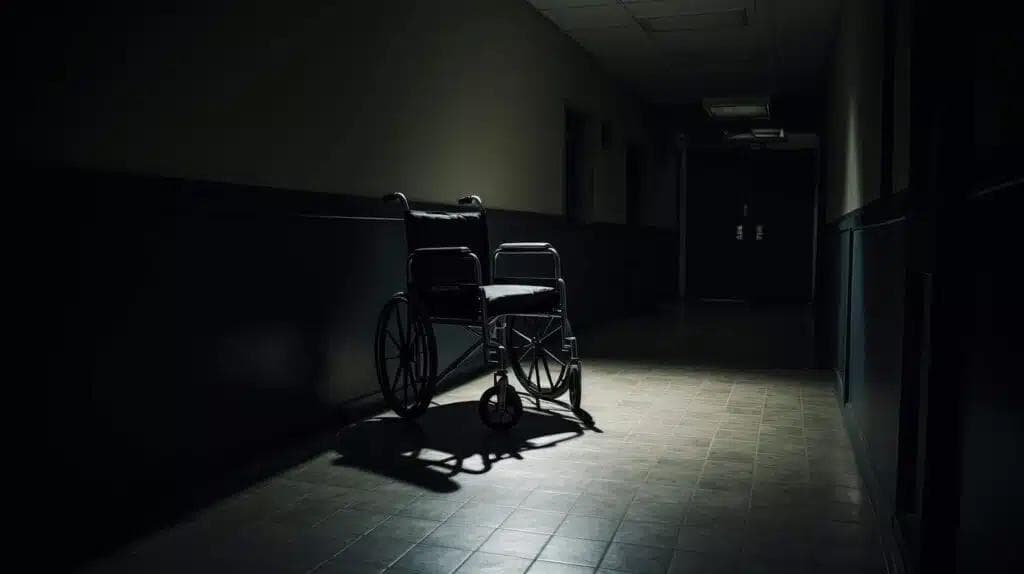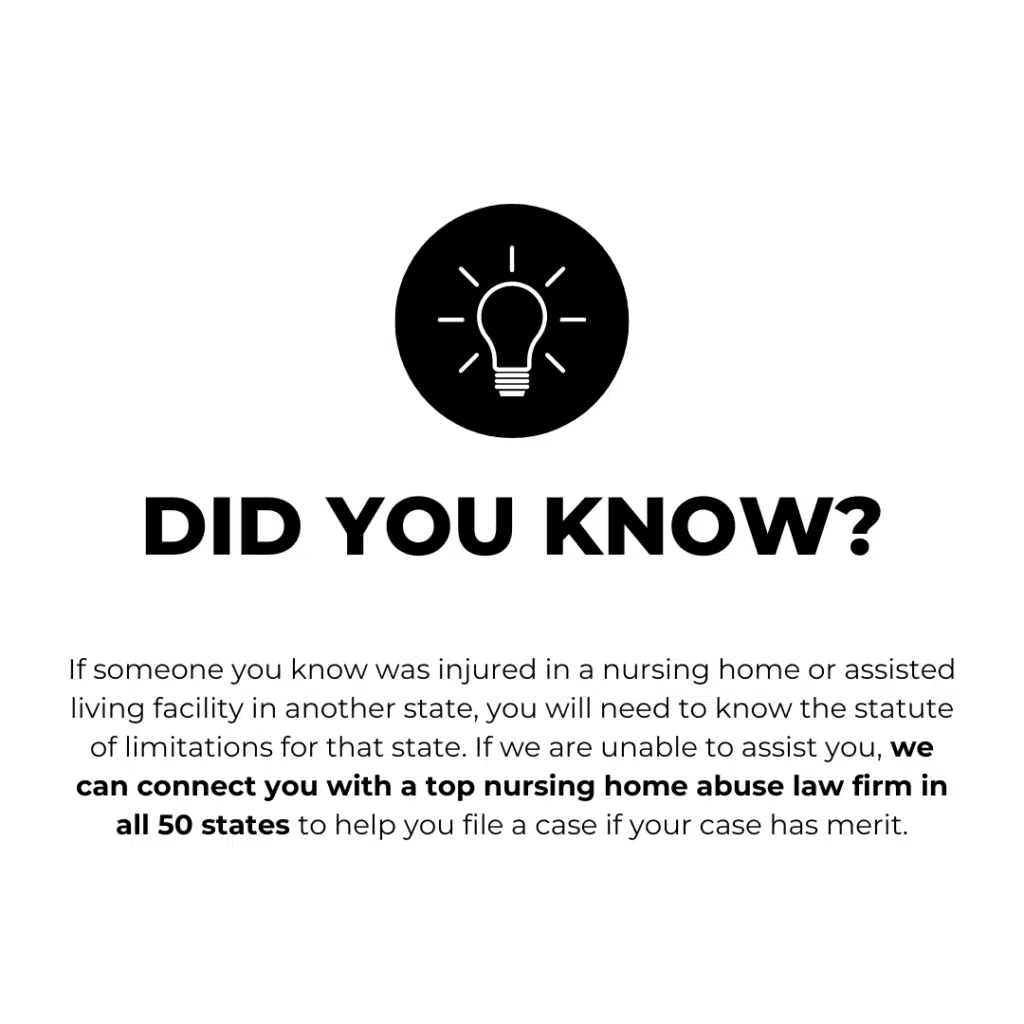
Nursing home abuse and neglect put vulnerable residents at serious risk, leading to malnutrition, dehydration, infections, and preventable injuries. When facilities fail to provide adequate care, residents suffer, and families are left feeling helpless. Lack of supervision, improper medical treatment, and unsafe conditions can result in devastating harm. Understanding the warning signs, knowing your legal rights, and holding negligent facilities accountable are crucial steps in protecting your loved ones. Learn how to take action and seek justice.
November 5, 2024
3 min
Nursing home abuse and neglect remains a recurring issue in nursing homes across the country. But why does nursing home abuse and neglect continue to occur in nursing homes? Experts agree that there is a combination of issues that cause abuse and neglect in nursing homes. The most common reasons for abuse and neglect in nursing homes are:
In this article, we will address these reasons why nursing home neglect and abuse continue to be a near-constant problem.
Understaffing in nursing homes jeopardizes resident safety. A shortage of staff is a major contributor to resident abuse and neglect. The most common ways that understaffing causes resident abuse and neglect are:
The strain of understaffing extends beyond the residents to the caregivers themselves. Insufficient staffing can lead to a stressful work environment for caregivers who already have a challenging job. The constant pressure to attend to numerous residents’ needs with limited resources can leave caregivers feeling frustrated, overwhelmed, and emotionally drained. This can result in overall apathy to residents as they feel there is no way they can do their job the way they know they need to.
Nursing home staff may struggle to maintain patience and empathy with residents. Feelings of frustration and burnout can manifest in uncharacteristic behaviors, such as raised voices, rough handling, and even physical violence from staff.
The lack of adequate support and resources can leave caregivers feeling unsupported and undervalued. This creates feelings of stress and resentment. These factors contribute to a toxic cycle where caregivers’ well-being is neglected

The nursing home industry manufactures many excuses for the lack of staff in nursing homes, such as difficulty finding qualified caregivers or challenges with budgets. In reality, however, there is one simple reason why nursing homes are understaffed–profits.
Fully staffing a nursing home is expensive and quickly chips away at the company’s bottom line. The vast majority of nursing homes are for-profit corporations. Resident care is rarely their main concern. Generating revenue and profits for their shareholders is given priority over resident safety. It is estimated that wages account for 65% of a nursing home’s operating expenses. The quickest way to increase profits is to increase revenue (more residents in the building) and lower operating costs (cutting staff). The end result is more money, but money made at the expense of residents’ well-being and often their lives.
In order to properly care for residents, nursing home staff must be adequately trained to meet each resident’s needs, regardless of what those needs are. If staff members lack adequate training, it can lead to abuse and neglect.
Common instances of nursing home abuse and neglect caused by a lack of training include:
It is well-known that good employees demand good pay. That is a fact of life in all industries. But paying nursing staff decent wages cuts away at the bottom line.
In the nursing home industry, there is no set pay standard. Each nursing home is free to pay staff whatever amount they choose. They often choose the lowest amount possible. Bear in mind that nurses can work in any industry, whether it is hospitals, doctors offices, or schools.
When you choose to pay too little, you don’t get the best. What you are left with are either nurses who are incapable of getting or maintaining jobs in other industries or who are stuck because they are in areas with few choices of employment. For those who do stay in the nursing home industry, they often feel overworked and underpaid. Nursing homes grind their employees into dust, and the good ones often leave for better working conditions. The ones who are left behind are undervalued, overworked, and sometimes incompetent.
Some caregivers neglect or abuse residents because of personal issues they bring to the job. Just as in any community, there are people who are prone to neglectful or abusive behavior towards others.
Numerous factors may drive these individuals to commit abuse. Typically, these caregivers grapple with personal challenges that serve as contributing factors, leading them to rationalize their neglectful or abusive actions. Some are simply unable to control their rage, leading them to abuse those who cannot fight back. Issues that caregivers may struggle with that increase the risk of abuse of a resident include:
Nursing homes must not only screen residents prior to employing them, they must continually monitor them so they recognize dangerous behavior before neglect and abuse occurs.
A major contributing factor to the persistence of nursing home abuse is the widespread absence of repercussions. Even when incidents are reported, instances of abuse in nursing homes may remain unexamined or without consequences from local and state authorities. Cover-ups are common.
This harmful pattern enables many nursing homes to continue operating according to the status quo despite repeated occurrences of abuse, neglect, or exploitation. These are corporate failures resulting in a culture of complacency.
Some residents are at a higher risk of experiencing abuse or neglect in nursing homes than others. Residents who are perceived as requiring more attention, being more time-consuming, or differing from other residents in some aspects are particularly vulnerable. Below are some risk factors that increase the likelihood of certain residents being subjected to nursing home abuse:
Nursing home abuse remains a major issue with several different causes. Although we cannot justify staff’s behavior, we must focus on recognizing and addressing risk factors of abusive tendencies. Only through collective action and a commitment to change can we strive to ensure that nursing homes truly become places of comfort, support, and respect for all residents.
Disclaimer: This information is provided for informational purposes only. Nothing in this article should be construed as providing legal advice or the creation of an attorney client relationship. Laws are updated frequently and change from state to state. If you desire legal advice, you can contact Michael Hill Trial Law at www.protectseniors.com, send an email to info@protectseniors.com, call (800) 659-2712 to begin an investigation, or contact another attorney.